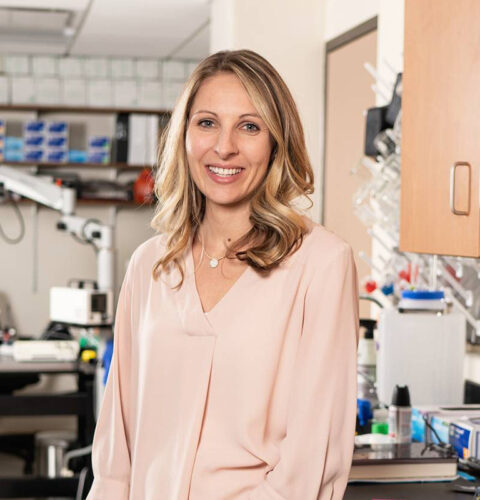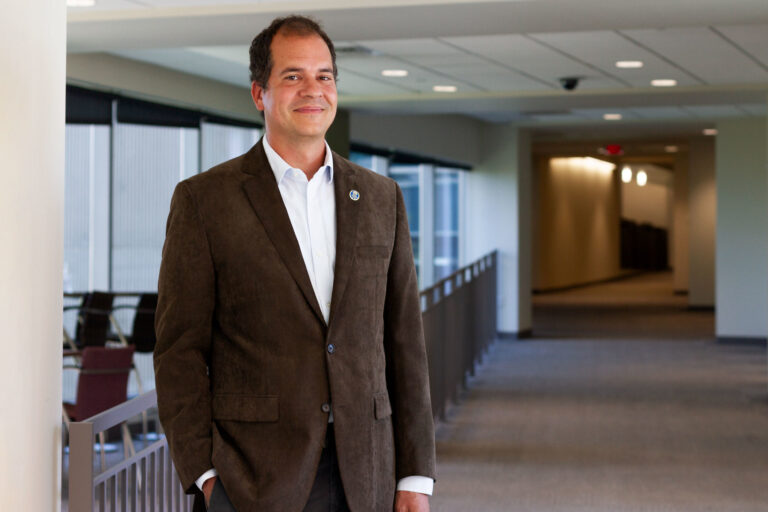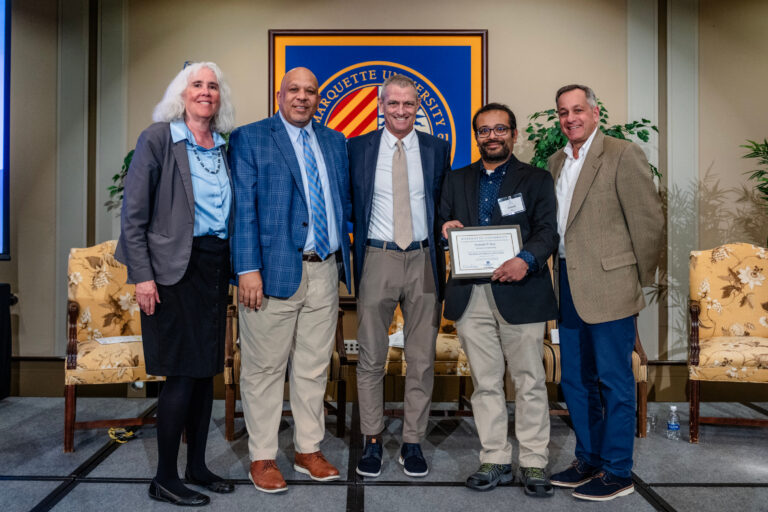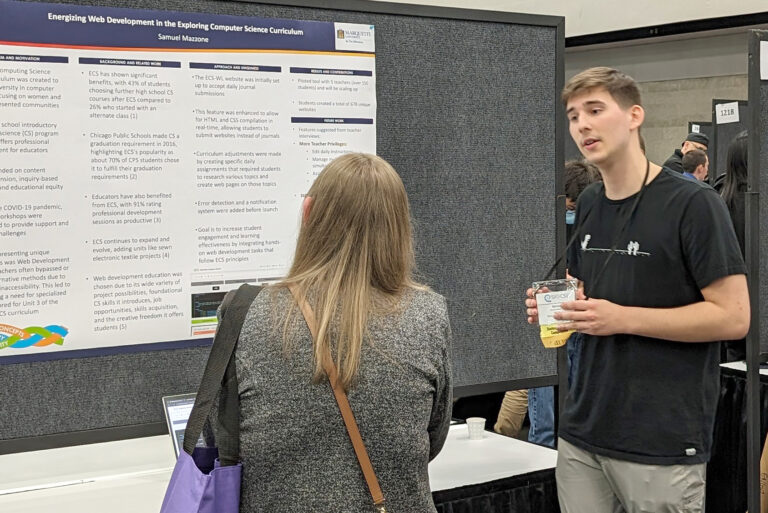
Dr. Kristi Streeter, assistant professor of physical therapy, has received a $400,000 grant from the Craig H. Neilsen Foundation to expand her research on recovery of breathing function after damage to the spinal cord. The project will examine how sensory signals from respiratory muscles can be used to facilitate independent breathing following spinal cord injury.
A cervical spinal cord injury (cSCI) disrupts the connections between the brain and respiratory muscles including the diaphragm, causing profound breathing impairments.
“Clinical data using diaphragm pacing, which involves rhythmic electrical stimulation of the diaphragm muscle, has shown that it can help individuals not only wean from a mechanical ventilator, but also breathe on their own,” Streeter says. “Our goal is to better understand this process, and we think that sensory neurons are key to this recovery.”
The project will determine how sensory signals are altered after spinal cord injury and with diaphragm pacing, and will deploy chemogenetic tools to manipulate sensory neuron activity and to determine the role of these cells in recovery of breathing.
Streeter’s research comes on the heels of a prior research grant award from the National Institutes of Health — a K99/R00 grant to study how sensory signals develop memories within the respiratory neurons that control breathing in health and following neurologic disease.
“Since starting at Marquette, Kristi has been a highly valued researcher in the department and college, showcasing her intuition and drive in her work at the cutting edge of spinal cord injury therapies,” says Dr. Allison Hyngstrom, chair of the Physical Therapy Department. “Her new grant award allows her to accelerate her investigations into the effectiveness of emerging therapies that allow affected individuals to breathe on their own without the use of an assistive device.”
Learn more about Streeter’s research by reading her feature in the latest College of Health Sciences Magazine.


